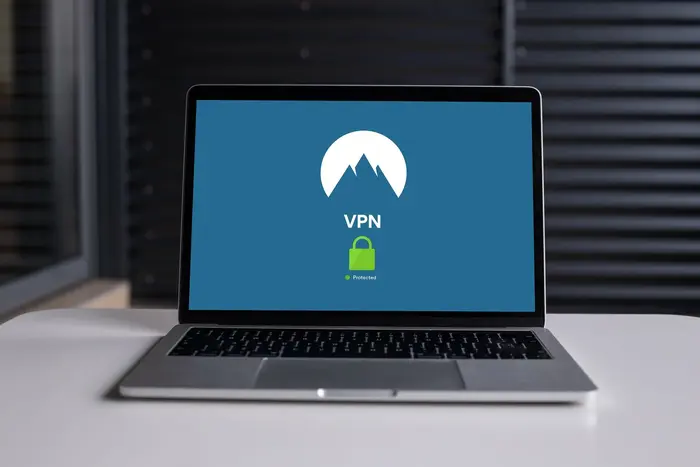Selecting the right free VPN for your Chromebook requires a bit of careful consideration. Not all VPNs are compatible or perform well on Chrome OS, and some specific features can make a big difference in your browsing experience.
Here’s a guide to help you choose the ideal VPN for your Chromebook without having to pay a dime.
Key Criteria for Choosing a Free VPN for Chromebook
When choosing the best free VPN for your Chromebook, consider these essential factors:
-
Compatibility with Chrome OS
Chromebooks operate on Chrome OS, which can limit compatibility with traditional VPNs designed for Windows or macOS. Choosing a VPN that specifically offers a Chrome extension or a dedicated Android app for Chrome OS is ideal.
This compatibility ensures smoother integration with minimal setup, allowing you to activate the VPN directly from the Chrome browser or Google Play Store. Without Chrome OS compatibility, a VPN might require complex manual configuration, which can be frustrating and time-consuming.
-
Encryption Strength
Encryption is the backbone of a VPN’s security. For Chromebook users, AES-128 and AES-256 are the most common encryption standards and the best for ensuring data safety.
AES-128 is efficient and secure for general browsing and lightweight tasks, while AES-256 provides a higher level of security, ideal for users handling sensitive information or on less secure networks.
When selecting the best free VPN, check for these encryption standards in the VPN’s specifications or settings. Both will provide secure connections, but AES-256 is generally the best choice if Chromebook security is your top priority.
-
Server Locations
VPNs with diverse server locations give you more options to connect from various regions. This flexibility allows you to bypass content restrictions and access geo-locked sites, whether it’s streaming platforms or region-specific websites.
For Chromebook users, it’s helpful to have at least servers in a few major regions (like North America, Europe, or Asia).
More server locations also reduce overcrowding, leading to faster connection speeds and a more stable browsing experience.
-
Connection Speed
VPNs often slow down your connection due to data encryption and routing. However, some VPNs minimize this impact. To avoid lag or buffering, especially for streaming or video calls on your Chromebook, opt for a VPN that maintains a download speed of at least 20 Mbps when connected.
This speed threshold ensures that you can comfortably browse, stream, or work without interruptions. Many free VPNs advertise high speeds but might be inconsistent; testing speeds after installation helps ensure consistent performance.
-
Data Limit
Free VPNs commonly limit monthly data usage, making it essential to choose one that aligns with your needs. For basic browsing, 500 MB per day can suffice, while streaming or downloading requires a higher limit.
When selecting a VPN, check its data policy to avoid unexpected cutoffs. Aim for a VPN offering a minimum of 500 MB/day or up to 10 GB/month, depending on your anticipated usage. This way, you can use the VPN more freely without worrying about quickly exhausting your data limit.
-
Privacy Policies
VPNs should secure your data, not collect it. Ensure the VPN you choose has a clear no-logs policy, ideally verified by an independent audit or trustworthy privacy policies.
This no-logs commitment helps protect your personal information and browsing history, providing greater assurance for privacy-conscious users. Review the VPN’s privacy policy for transparency about data handling and any shared information.
There are many specialized websites where you can compare free VPN services and their specific features, especially those tailored for Chromebook compatibility.
These sites often feature side-by-side comparisons, highlighting differences in speed, server availability, encryption levels, and other features to help you choose the best option.

How to Test if a VPN Meets Your Needs
After selecting a VPN, make sure it meets your expectations by testing specific aspects based on your needs:
- Speed: Speed matters if you stream, game, or conduct video calls on your Chromebook. You can test VPN speed by visiting online speed test websites and checking for metrics like download and upload speeds while connected to the VPN. Disconnect and retest without the VPN to compare.
- Privacy: For privacy-conscious users, a VPN’s no-logs policy is critical. To check if your VPN truly hides your IP, use websites that detect IP addresses and DNS leaks. Additionally, test for WebRTC leaks using specialized sites that scan for this vulnerability, as WebRTC can expose your IP even with a VPN connection.
Chromebook-Specific VPN Features
Chromebooks have a unique operating system, which sometimes limits VPN compatibility. As Chromebooks often rely on web-based applications, browser extensions for Chrome can be a convenient alternative to a full VPN app. Look for VPNs that offer Chrome extensions, as these are quick to install and tend to work seamlessly with Chrome OS.
Another important consideration is Android compatibility. Many Chromebooks can now run Android apps, so if a VPN has an Android app, it can often be downloaded directly from the Google Play Store. This is a practical solution, providing the functionality of a standard VPN without complex configurations.
Choosing a free VPN for your Chromebook can elevate your browsing experience, providing security and unlocking access to geo-restricted content. Look for compatibility, strong encryption, flexible server locations, good speed, and fair data limits.
Whether it’s privacy or speed that matters most to you, testing these features after installation will ensure the VPN aligns with your needs. Specialized websites can simplify this process, helping you make the best choice without the guesswork.
The post How to Choose the Best Free VPN for Chromebook appeared first on About Chromebooks.

